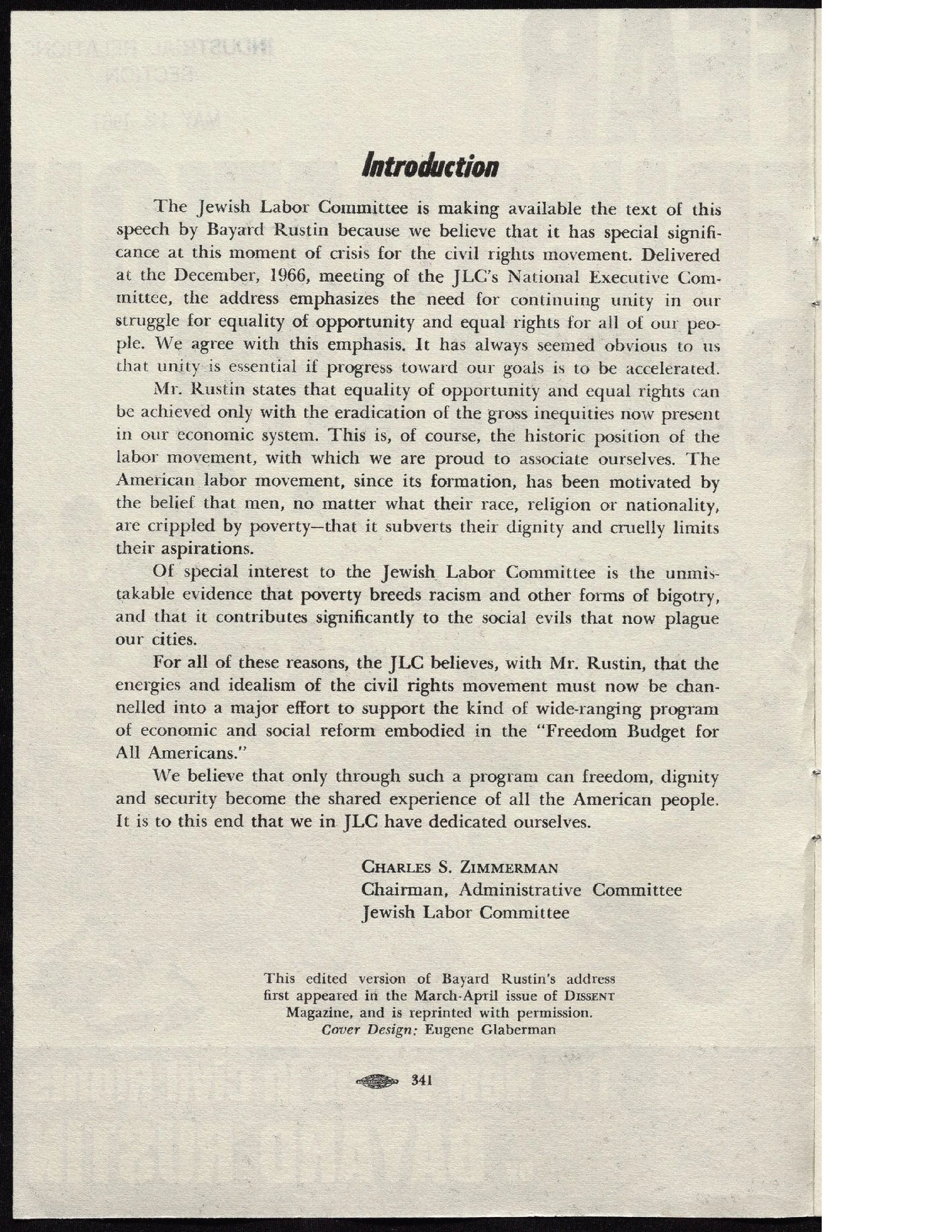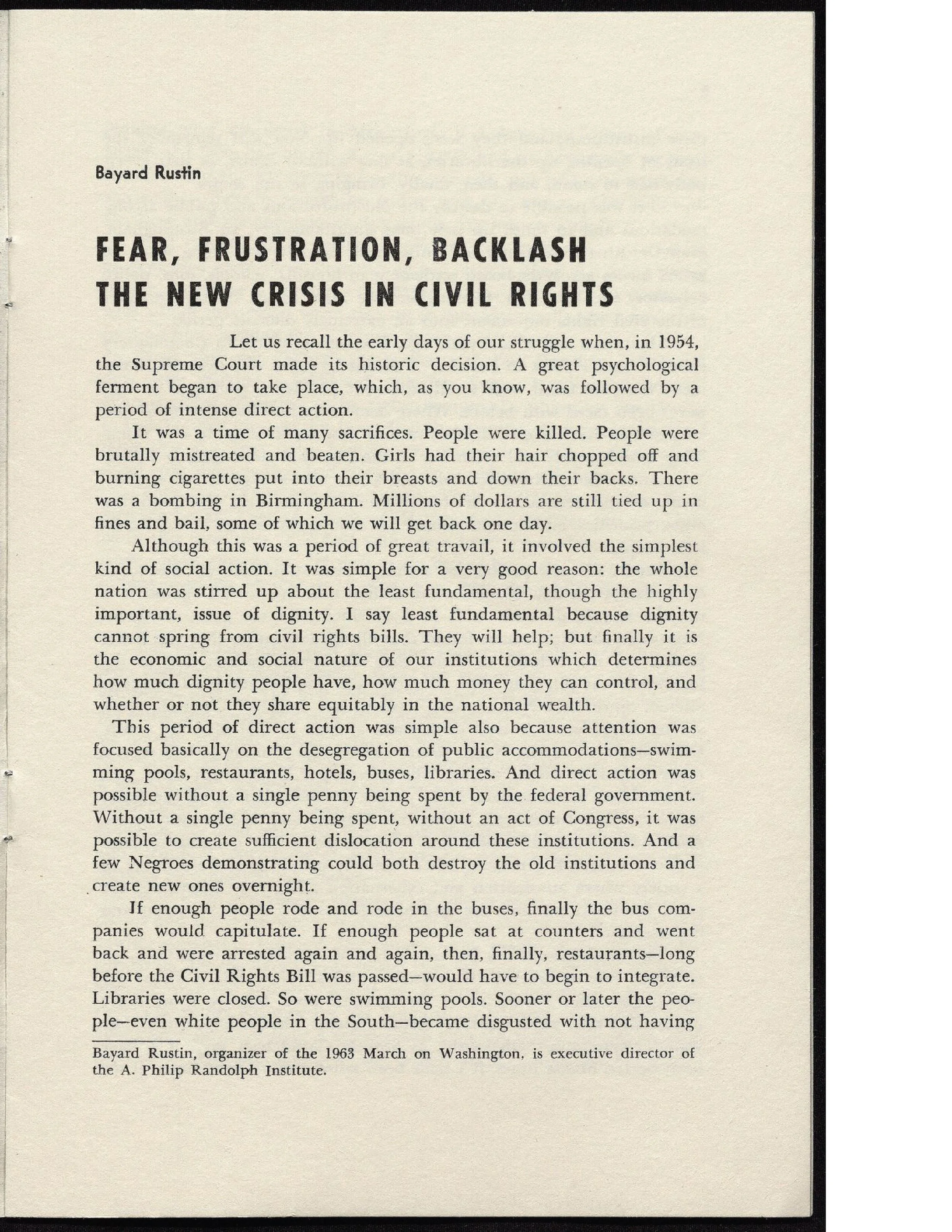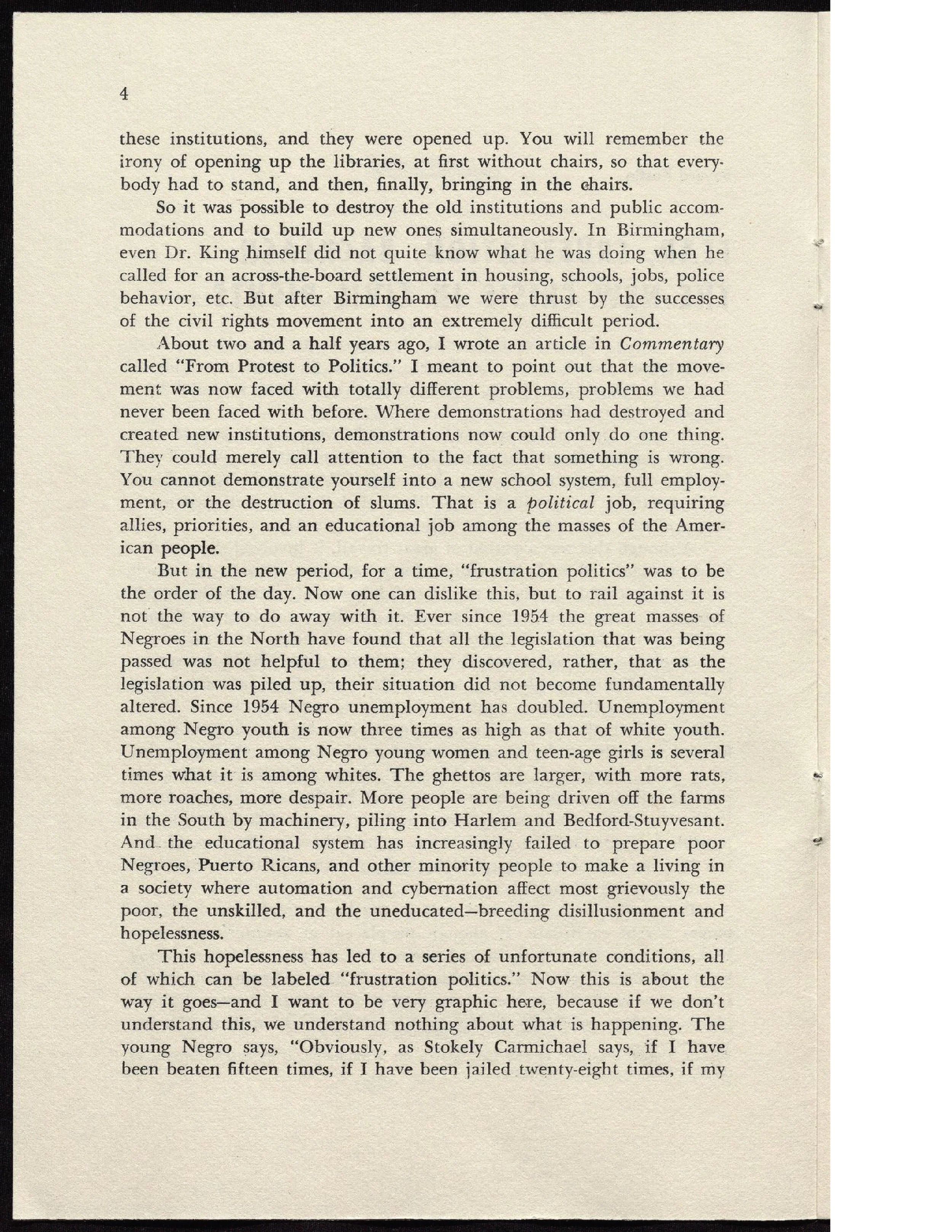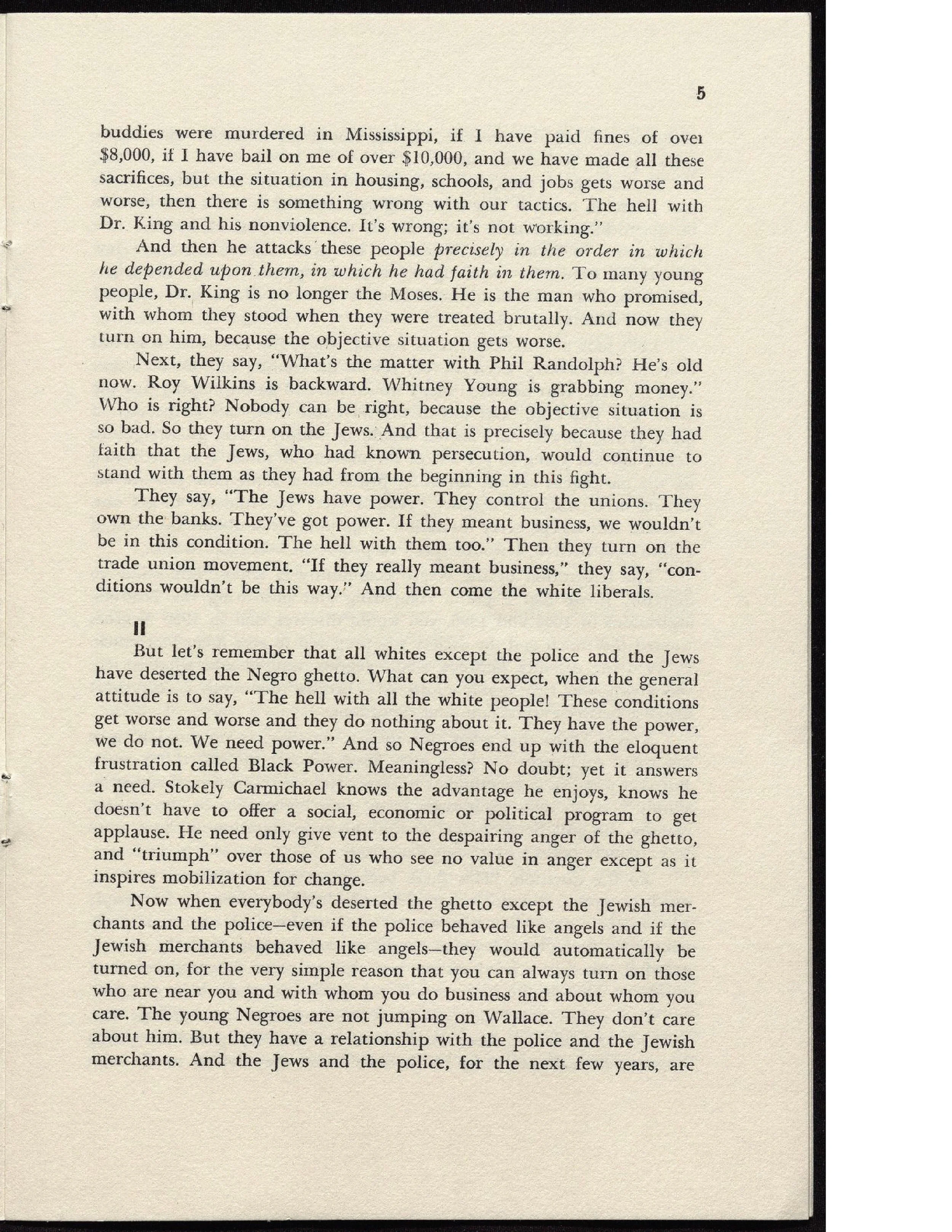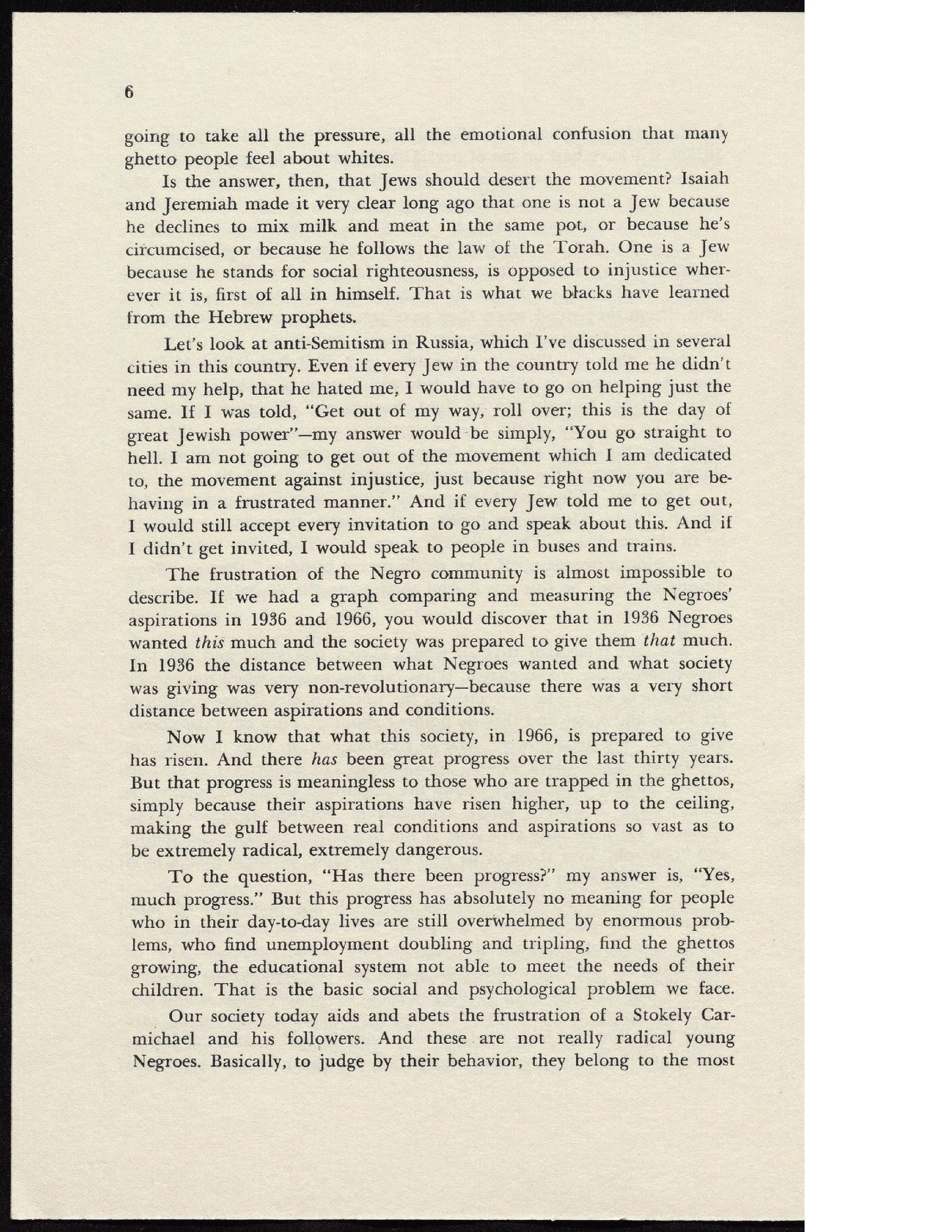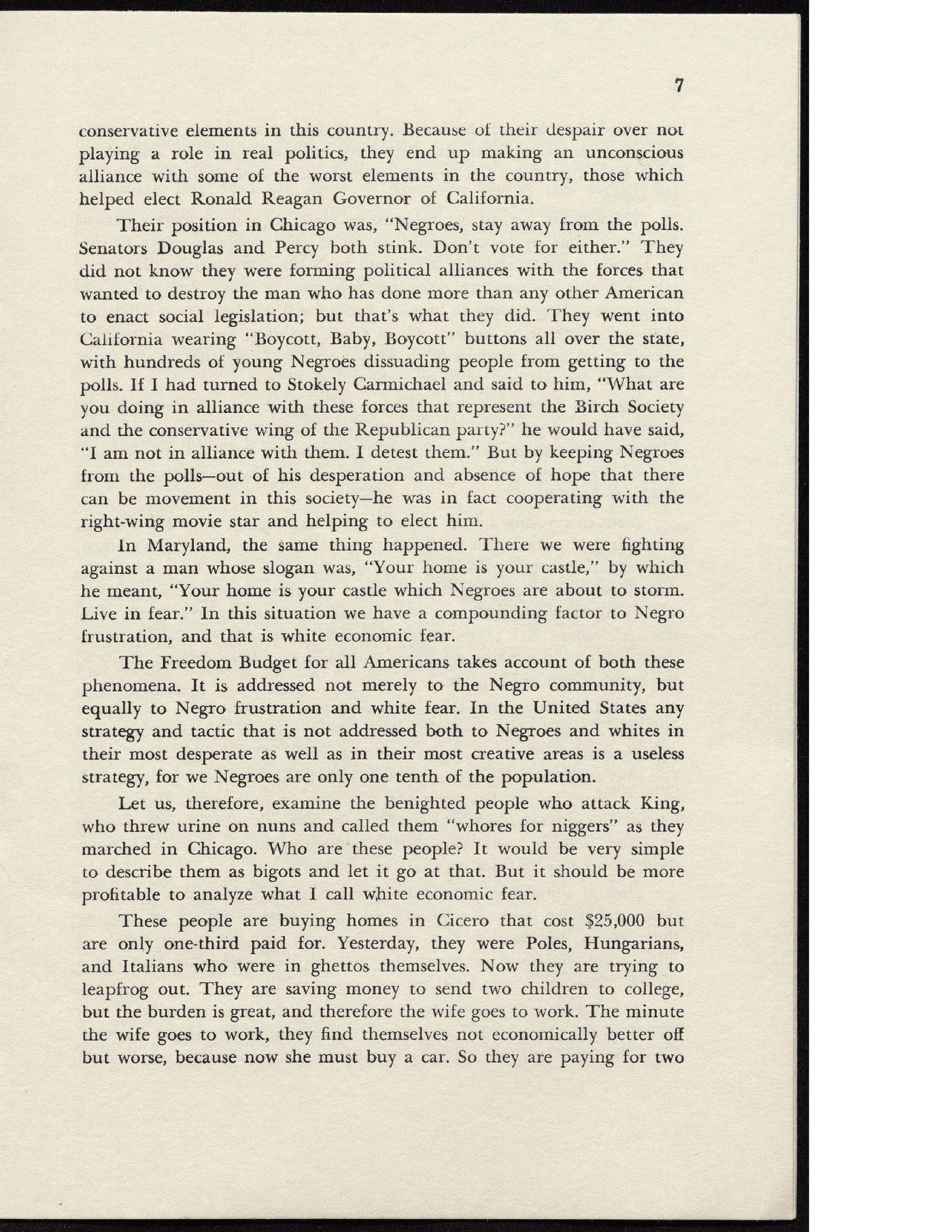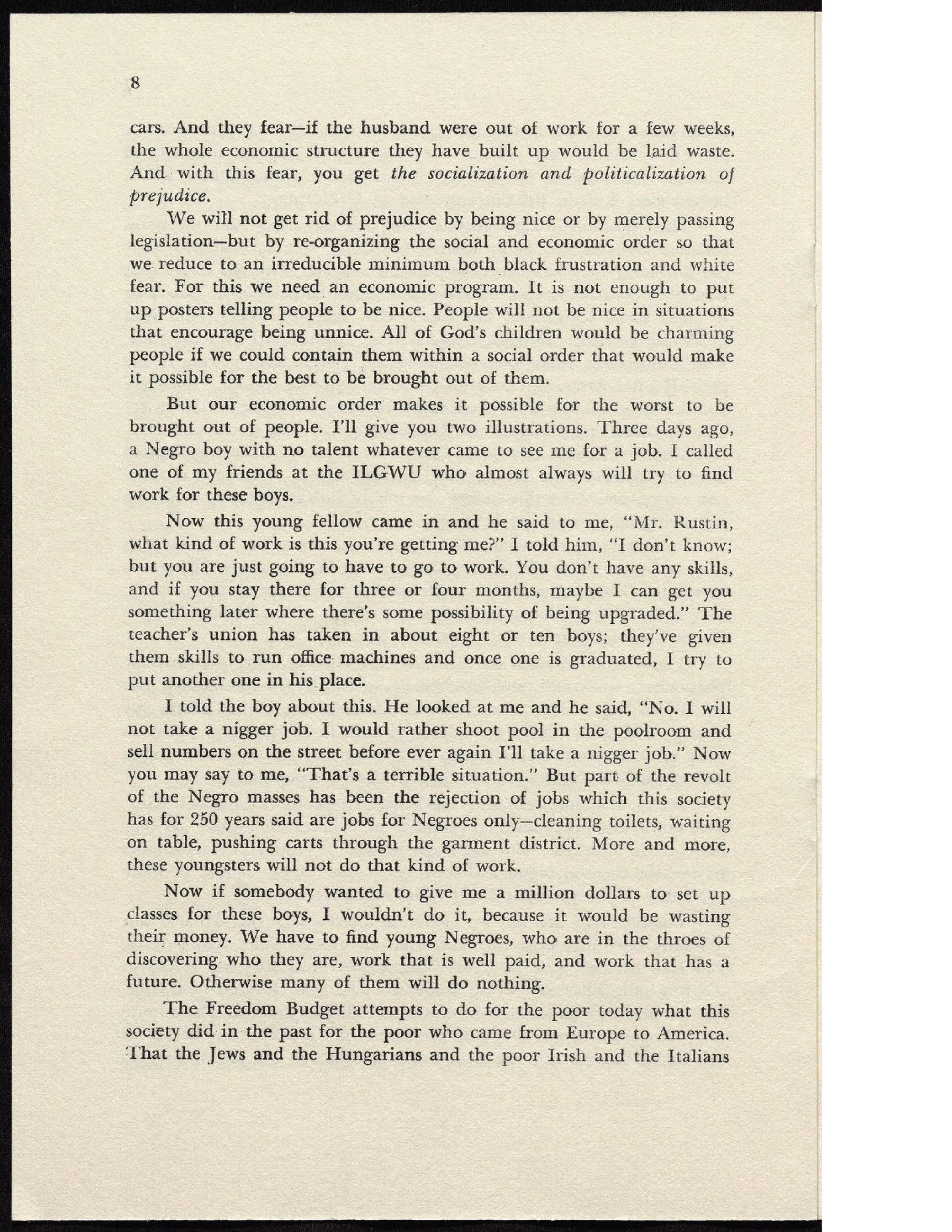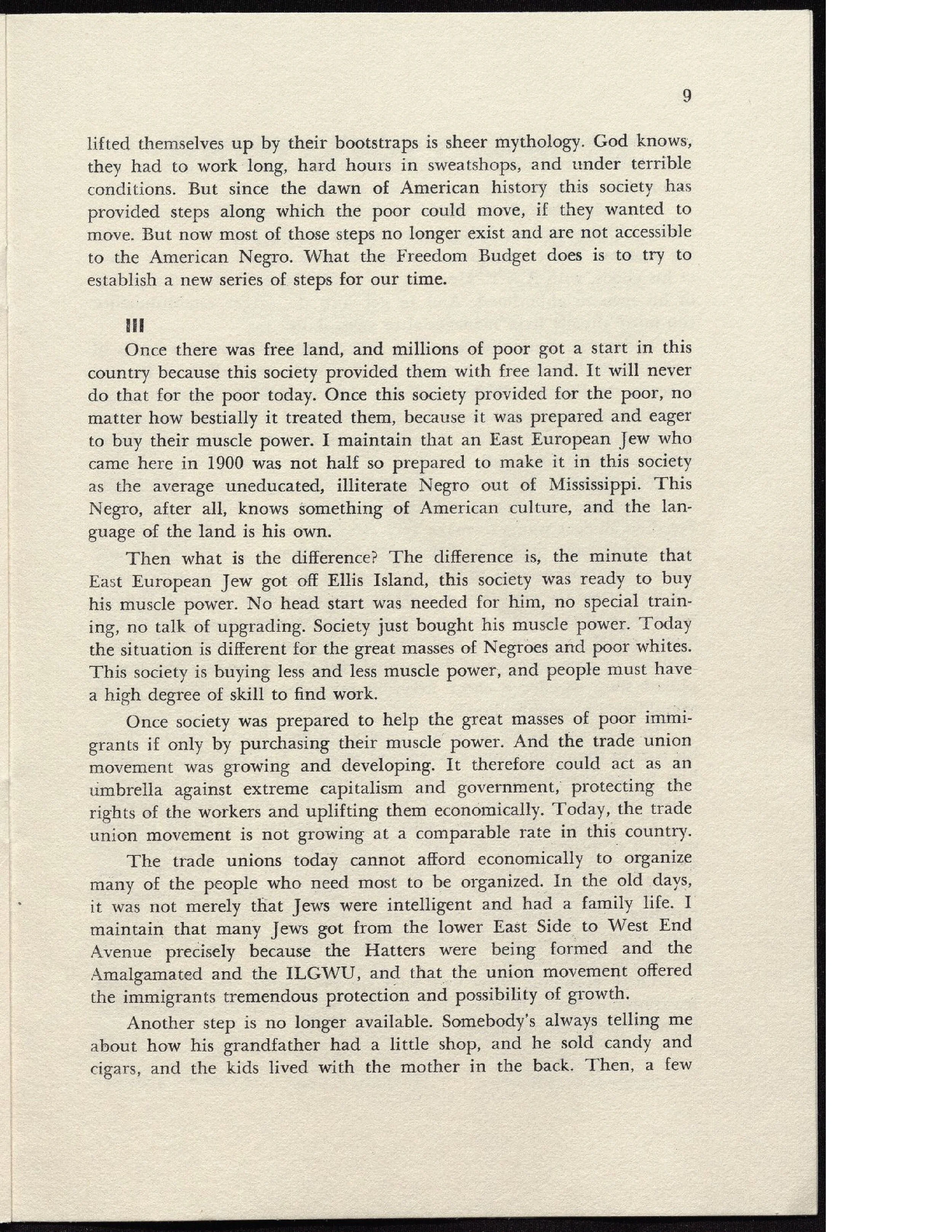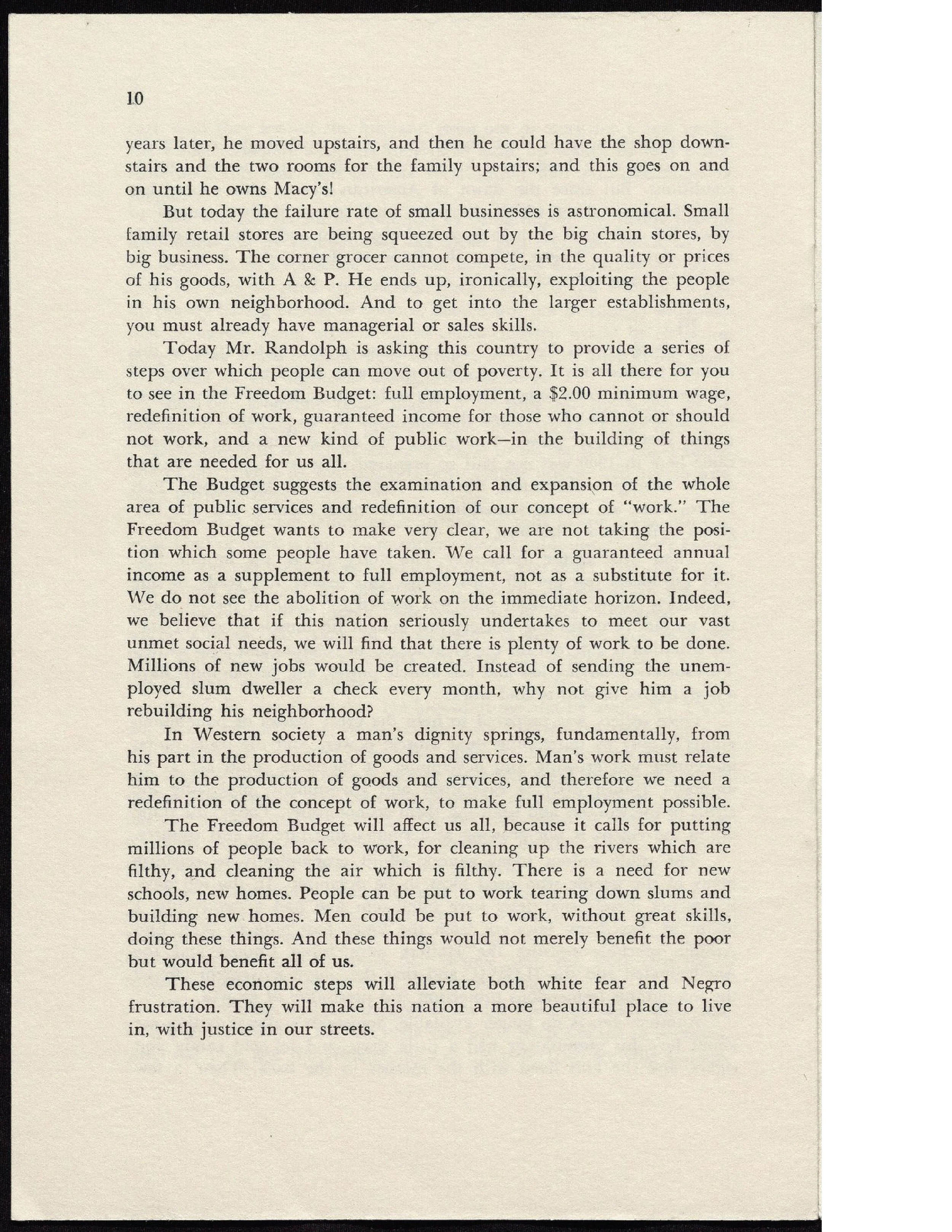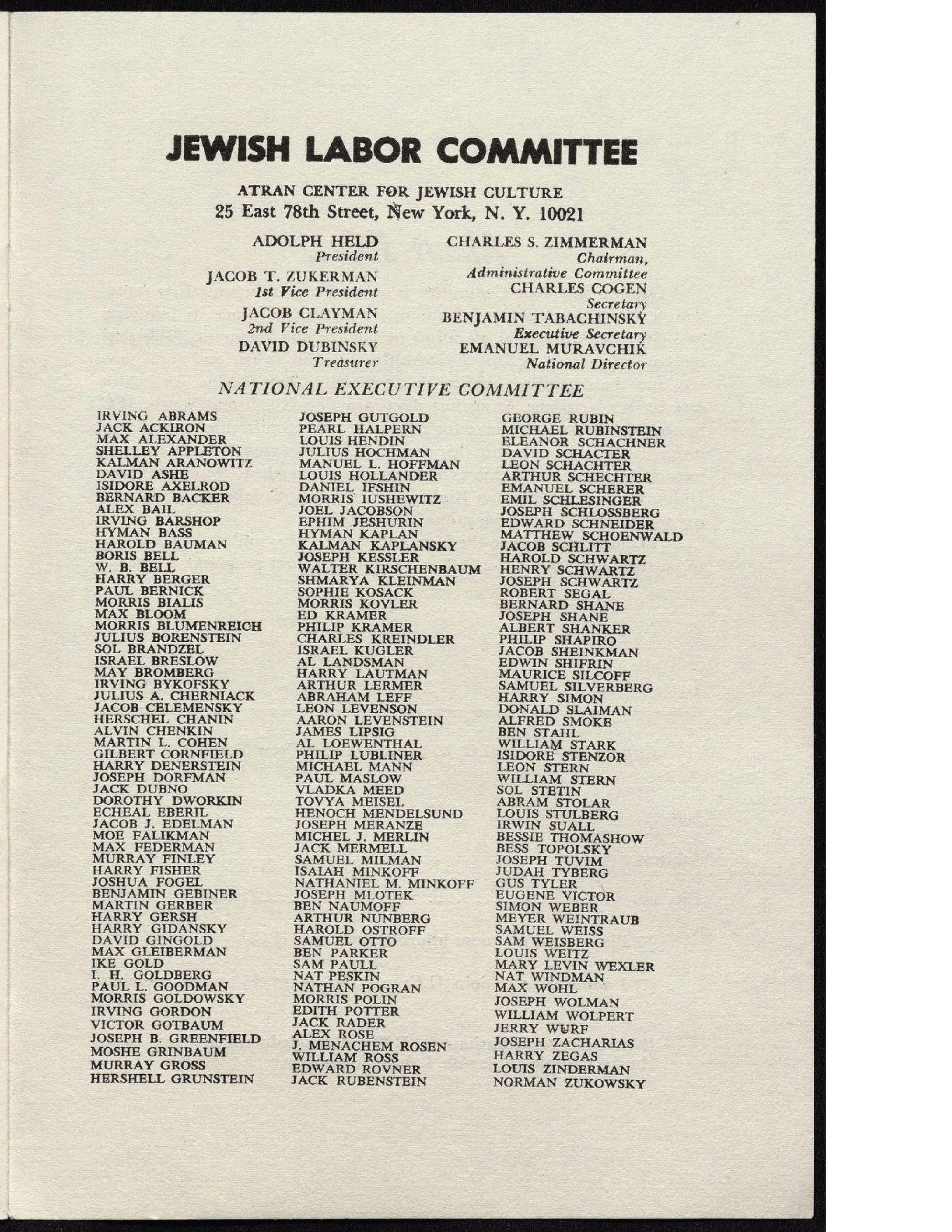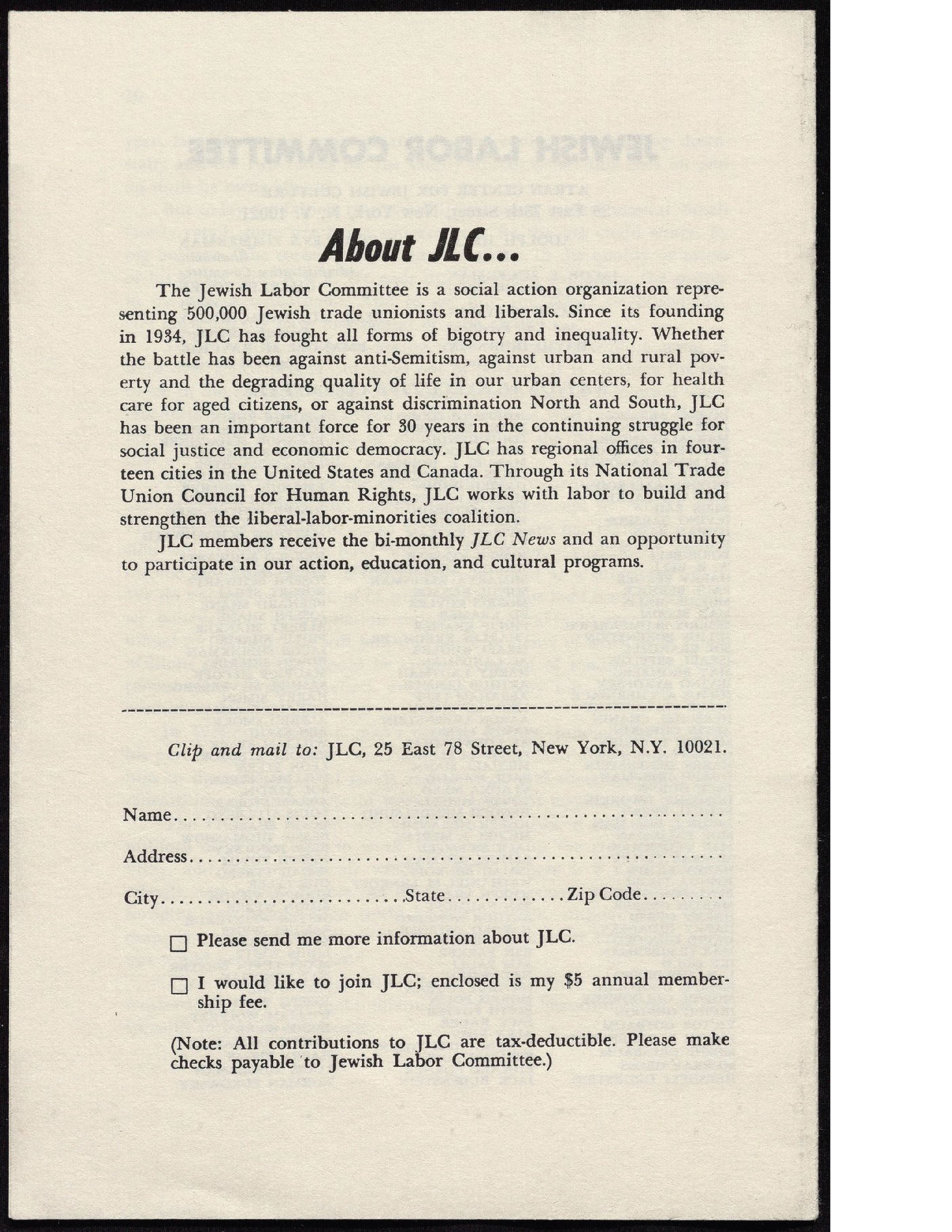Bayard Rustin’s influential 1967 pamphlet, Fear, Frustration, Backlash: The New Crisis in Civil Rights, outlined the limitations of civil rights legal gains and called for sweeping economic reforms to tackle systemic poverty and racial injustice affecting African American communities.
By the mid-1960's, despite landmark civil rights laws, entrenched economic disparity and urban unrest highlighted the need for broader social reforms. The Freedom Budget, led by A. Philip Randolph Institute, advocated federal investment from jobs, education, and social services, framing economic justice as essential to true racial equality and long-term social stability.

